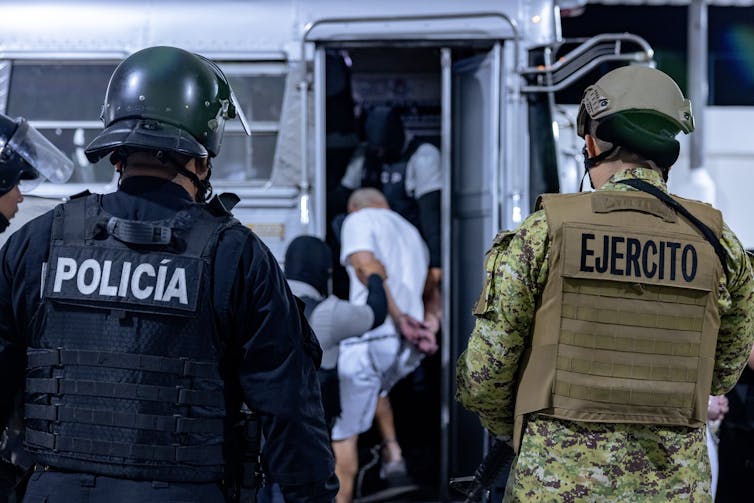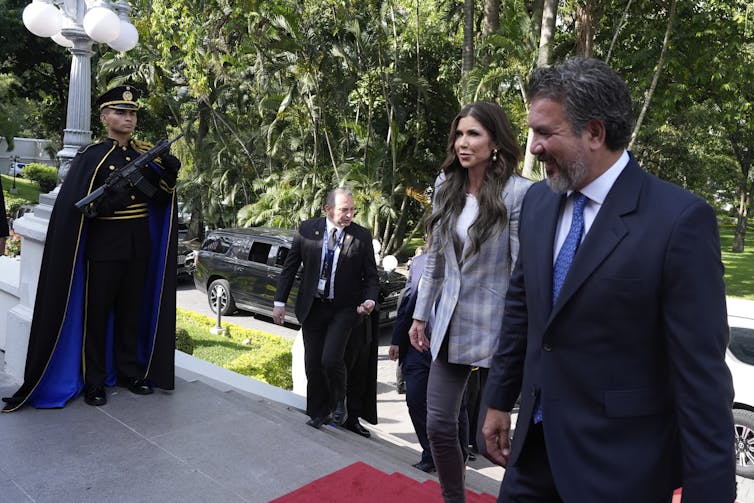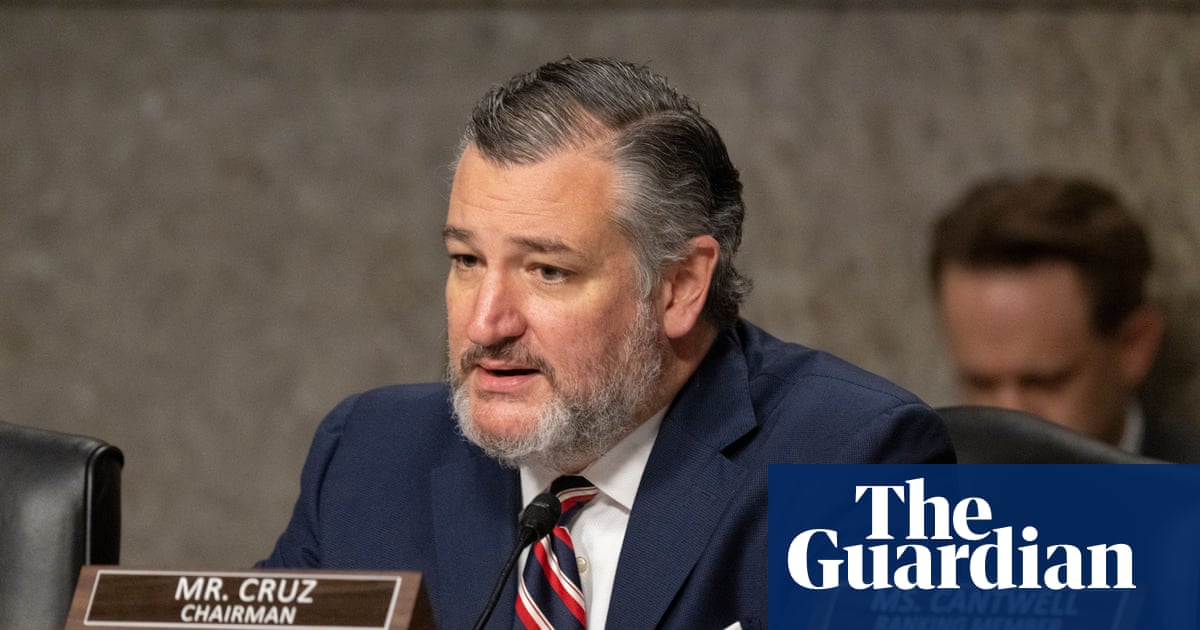The U.S. State Department declared on Feb. 20, 2025, that the Venezuelan gang Tren de Aragua, as well as some Mexican drug cartels, are now considered foreign terrorist organizations.
Is the new label warranted?
Tren de Aragua is at the center of a controversial immigration case that the Supreme Court is going to consider.
The Trump administration is using the 1798 Alien Enemies Act to justify deporting more than 100 of the 238 Venezuelan and Salvadoran male immigrants it sent to a prison in El Salvador on March 15. The administration says that these immigrants are members of gangs such as Tren de Aragua and are foreign enemies, so they can be sent away with just an order from the White House.
The administration uses a checklist of items, including physical markers like tattoos, to determine these individuals’ association with Tren de Aragua. Although in reality, the Tren de Aragua gang members do not use any specific tattoos.
Family members and lawyers representing some of the Venezuelan immigrants say that they are not actually associated with the gang, and that some of them were living in the U.S. legally.
I am an expert on immigration, and I think it is important to understand why classifying Tren de Aragua as a foreign terrorist organization has sparked debate among observers.
One important reason is that Tren de Aragua is primarily a profit-driven group, not an ideological one – placing the organization more firmly in the transnational organized crime category rather than a political terrorist group.

Understanding Tren de Aragua
Tren de Aragua originated as a small prison gang in the early 2000s within Tocorón prison in Venezuela’s state of Aragua, located near the country’s capital, Caracas.
Over the past 25 years, Tren de Aragua has expanded rapidly across South and Central America, and evolved into a transnational criminal organization under the leadership of Hector Guerrero Flores, also known as Niño Guerrero, is a 41-year-old Venezuelan who first served time in Tocorón prison in 2010 for killing a police officer before he escaped for the first time in 2012. His current location is not known.
Flores is wanted by the U.S. and Colombia for various crimes related to expanding the group’s criminal network throughout South and Central America.
Today, an estimated 5,000 people are affiliated with Tren de Aragua, which is mainly focused on human trafficking and other crimes targeting migrants. The gang has also been linked to other criminal organizations in Latin America and is involved with extortion, kidnapping, money laundering and drug smuggling. The number of active members in the United States is in the low hundreds, and clearly the great majority of Venezuelans here are not members.

Different end goals
Tren de Aragua has expanded in part because of its ability to exploit weak governance within the state of Aragua, and eventually across Venezuela, which faces political instability and a weak economy. An expansion beyond Venezuela has allowed the gang to connect with other transnational criminal networks.
Most accepted definitions of terrorism say it is a kind of violence, usually used against civilians, motivated by political and ideological beliefs and goals. Tren de Aragua does not fit that definition. It does not have a political ideology and therefore is not an actual terrorist organization.
The U.S. government considers a foreign terrorist organization a foreign group that engages in terrorist activity, or plans to do so, in a way that threatens the security of U.S. nationals or the country more broadly.
Tren de Aragua is among the eight groups that the State Department first classified as foreign terrorist organizations in the first few months of 2025 after Donald Trump’s inauguration. The other new groups put on the list primarily include Latin American drug trafficking organizations, like the Mexican Sinaloa cartel.
While transnational criminal organizations and foreign terrorist organizations both engage in violence and illicit activities, their end goals are different.
Foreign terrorist organizations such as al-Qaida and the Islamic State group seek political, religious or ideological change – or all three – as they try to use violence to reshape the political landscape of their regions.
Terrorist groups and transnational criminal organizations are not the same
Tren de Aragua, as well as other transnational criminal groups like MS-13 – which originated in Los Angeles but now operates throughout the Americas – and the Sinaloa cartel, carry out illegal, violent activities across borders in order to make money.
These groups do not have political or ideological motives beyond creating conditions to maximize their own profits. They do not aim to take political power in the U.S. or elsewhere, or try to remake society in their own image. That is beyond their purview and capabilities.
Properly distinguishing between terrorist organizations and transnational criminal organizations is crucial for devising effective policies and responses to their violence. Mislabeling these groups can lead to inappropriate responses such as putting aside civil liberties, due process and human rights.
Incorrectly classifying Tren de Aragua and other criminal groups as terrorist organizations could shift U.S. foreign policy and resources toward counterterrorism efforts and away from decreasing the power and violence exercised by organized crime and drug cartels in many parts of Latin America.
However, the way in which many Venezuelans and other immigrants have been deported from the country over the past few months without passing through immigration court seems to indicate that the main rationale for the talk about alien enemies and these terrorist designations is to aid in the goal of mass deportations, rather than to fight domestic or international terrorism.
If the U.S. truly wants to curb undocumented immigration and reduce drug and human trafficking, then I believe that it should ensure that its classification of these organizations is accurate and aligned with its actual objectives.
Melissa Vasquez, a graduate student at American University studying international affairs and the Northern Triangle in Central America, contributed to this piece.

 German (DE)
German (DE)  English (US)
English (US)  Spanish (ES)
Spanish (ES)  French (FR)
French (FR)  Hindi (IN)
Hindi (IN)  Italian (IT)
Italian (IT)  Russian (RU)
Russian (RU)  1 day ago
1 day ago






















Comments